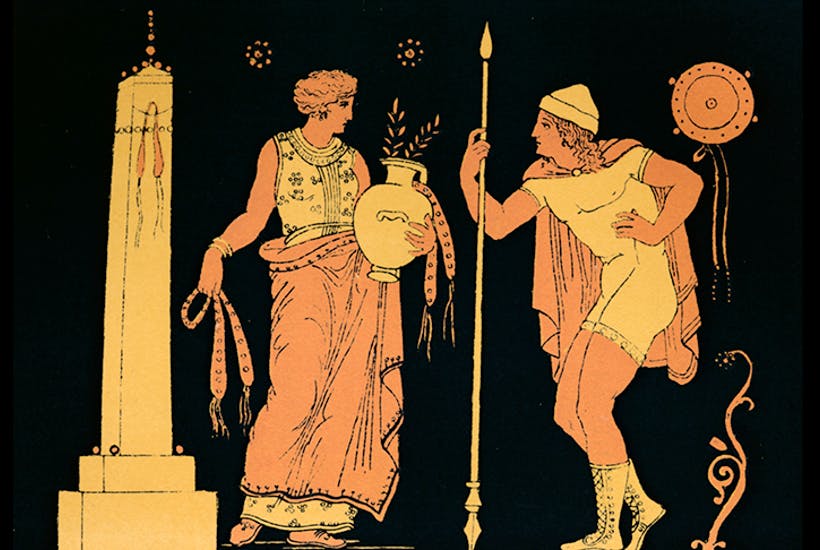
Greece is the word for the New Yorker’s Comma Queen
Mary Norris is in love with all things Greek, from the alphabet to Zeno, by way of sailors and skinny-dipping…
Mary Norris’s book about her love affair with Greece and the Greek language starts with a terrific chapter about alphabets. That may sound like an oxymoron, but I was fascinated to learn why the Y and the Z come at the end of our alphabet. When the Romans were adapting the Greek alphabet, they ditched these letters because they didn’t need them. Later, when they started using Greek words, they wanted them back, so they tacked them on at the end.
Equally, it’s nice to know how it comes about that, in England, we pronounce the letter Z as Zed — unlike in America, where Zed’s dead (and they say Zee, baby). It’s a throwback to a time we would have called it Zeta, after the Greek letter. Obvious, once you know.
And how about upper-case for the big letters and lower-case for the small? In early printing, it turns out, the metal type was kept in drawers or cases. The big letters were in the upper case, because they were less often required; the small in the lower case, which was easier to reach.
There’s plenty more where this came from, but most of it is packed into the ‘lower case’ of Norris’s first couple of chapters. Greek to Mebecomes more personal as it goes along, which for the reader, unfortunately, translates into an experience of diminishing returns.
Norris was inspired to explore the classics when she saw Terry Gilliam’s film Time Bandits at the cinema in 1981. It was the sight of a manly, middle-aged Sean Connery, who appears in a cameo as Agamemnon, that did the trick. So it was an erotic impulse, at least in part, that first sent the young bluestocking on a mission to Greece.
She resolved to learn the language — first the modern version, and later the ancient, so that she could read Homer and Plato in the original. The New Yorker magazine, where she worked as a subeditor, paid for the lessons, on the odd grounds that knowledge of Ancient Greek might improve her spelling. Her ‘adventures’ gave her confidence for an accompanying emotional liberation. Norris had been a shy woman, uneasy with her own physicality (she describes herself as gap-toothed and red-nosed). Under the influence of the classics, she had some interesting encounters with Greek sailors and developed a penchant for skinny-dipping.
This would all be fine, if it weren’t for the fact that her natural modesty makes her a reticent autobiographer. On the one hand, her grappling with the language and literature is diverting: I particularly enjoyed her account of her participation in a production of Euripides’s Electra, the tale of Clytemnestra’s matricidal daughter, which was billed on the poster as ‘Fun for all the Family’. But on the other hand, Greek to Me could have been more urgent.
These days there’s a lazy assumption in some quarters that Ancient Greek is exotic and scintillating. Which of course it is, but that doesn’t mean you don’t have to make the argument. In Howard Brenton’s new play Jude, recently at the Hampstead Theatre, the protagonist is a young Syrian refugee with an uncanny gift for Greek tragedy. But it’s not made clear why her passion should be for that, rather than, say, Shakespeare. It’s just a kind of cultural high-five, delivered by the author to himself.
My brother, who teaches classics, tells me there are now only about 300 pupils studying Ancient Greek at A-Level in the UK. There’s no way Norris’s book is going to multiply that figure, and that of course cannot have been her intention. More’s the pity.
Source >> https://www.spectator.co.uk/2019/06/greece-is-the-word-for-the-new-yorkers-comma-queen/

